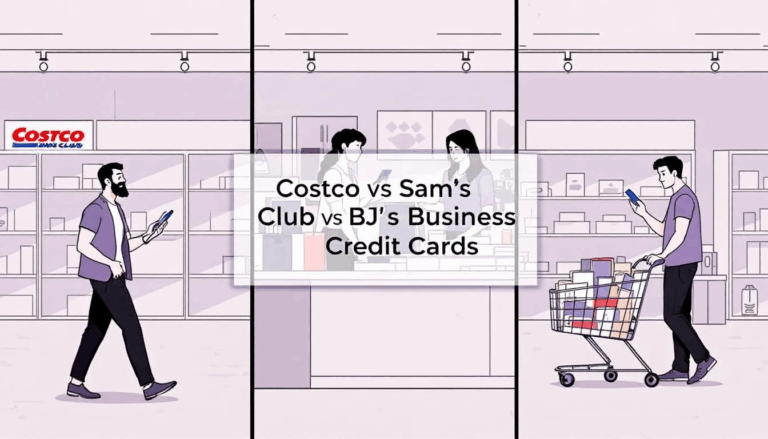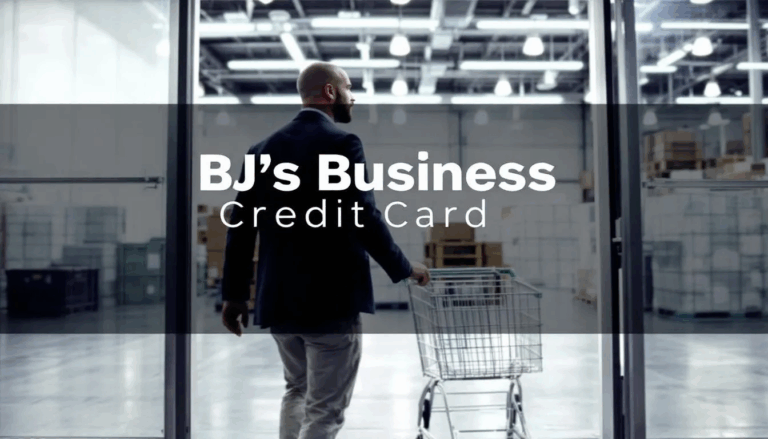

Each wholesale club’s card excels for a different type of business. Costco’s program is best suited for companies with heavy travel and dining budgets, Sam’s Club is ideal for fuel-intensive operations, and BJ’s is the most rewarding for frequent in-store buyers with smaller-ticket purchases.
Choosing the right card isn’t just about which wholesale club is closest to your business—it’s about

Running a small business means keeping expenses in check while still stocking up on the necessary supplies to operate smoothly. For many owners, wholesale clubs like BJ’s Wholesale Club offer significant savings by allowing bulk purchases at discounted prices. To make those savings go further, BJ’s also provides its own line of business credit cards, which reward you for BJ’s

A tradeline is any credit account that appears on a credit report. In personal finance, this could be a credit card account, an auto loan, or a student loan. In the business world, business tradelines encompass vendor accounts, business credit cards, installment loans, and revolving accounts associated with your company.
So, how long does it take for tradelines to appear

Chime is a financial technology company that offers personal banking services through a user-friendly mobile platform. While it offers banking features similar to traditional banks, it is not a bank. Instead, it partners with FDIC-insured institutions: The Bancorp Bank and Stride Bank. This partnership ensures account holders receive the same level of deposit insurance as they would with a traditional

A business bank account is a financial account used to manage a company’s funds. Unlike a personal checking account, a business account separates personal and professional finances, essential for accurate recordkeeping, tax reporting, and liability protection.
ChexSystems is a consumer reporting agency governed by the Fair Credit Reporting Act. It collects data on closed bank accounts, unpaid overdraft fees,

Small business owners have many loan options to support their company, but the coveted SBA loans are the most advantageous financing arrangements. Backed by the Small Business Administration, these loans provide large borrowing amounts at the most favorable rates and terms.
However, the qualification process is the biggest challenge and mystery surrounding the loan program. Many potential borrowers struggle to

Some businesses wait weeks between providing goods and services and getting paid, known as selling on credit. When a business sells on credit, it issues an invoice to the company that owes the money and adds it as a journal entry in accounts receivable.
While the business is waiting for that money to come in, bills and expenses keep coming.

Sometimes businesses technically have the revenue to cover expenses, but it’s tied up in accounts receivable. Unpaid invoices are almost like unsold inventory – the value is in the asset rather than liquid capital you can spend on the business. And just like unsold inventory, the longer it goes, the less profitable it becomes, as you still have daily expenses.

SBA loans refer to several programs administered and backed by the Small Business Administration. With the backing of a government agency, these loan programs usually offer the highest loan amounts, lowest interest rates, and longest repayment terms.
However, securing a loan through the SBA requires working with an approved third-party lender. Each lender has different requirements and may only offer

Investing in a tractor-trailer (aka semi-truck, big rig, 18-wheeler, etc.) is a major expense, but one that could yield high revenue. Whether you’re an independent owner-operator or own a freight business, most truckers don’t have the available liquid capital to purchase a new or used truck directly.
Most small business owners turn to financing options to fund a commercial truck